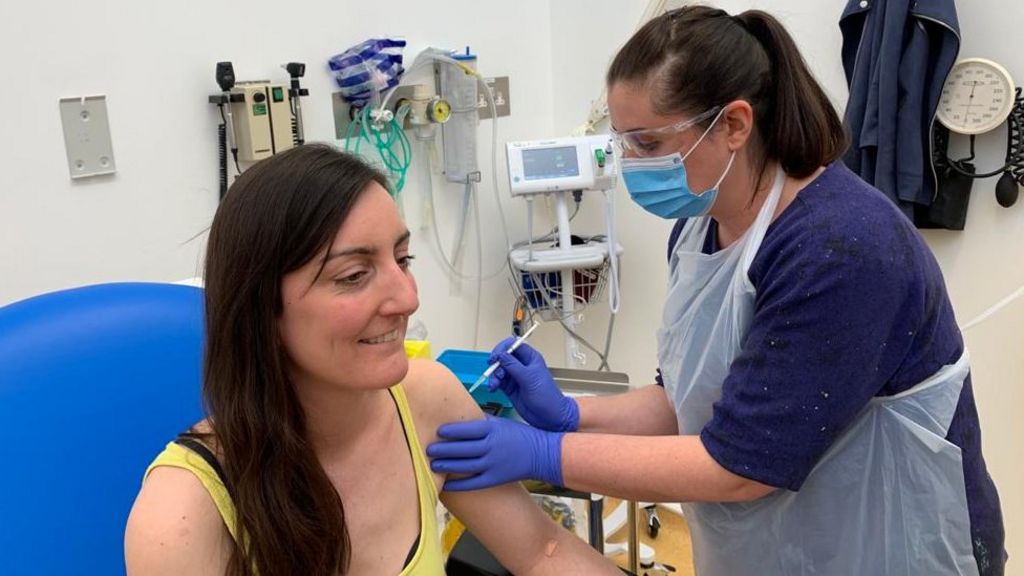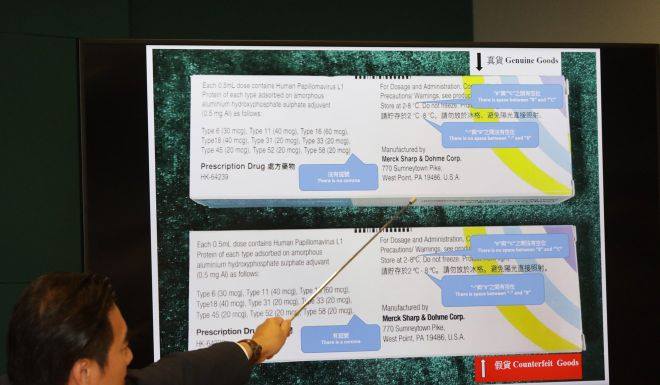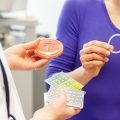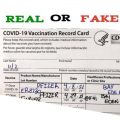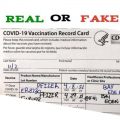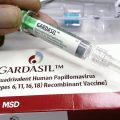What are HPV vaccines?
HPV vaccines are vaccines that protect against infection with human papillomaviruses (HPV). HPV is a group of more than 200 related viruses, of which more than 40 are spread through direct sexual contact. Among these, two HPV types cause genital warts, and about a dozen HPV types can cause certain types of cancer—cervical, anal, oropharyngeal, penile, vulvar, and vaginal.
Three vaccines that prevent infection with disease-causing HPV types are licensed for use in the United States: Gardasil®, Gardasil® 9, and Cervarix®. All three vaccines prevent infection with HPV types 16 and 18, two high-risk HPVs that cause about 70% of cervical cancers and an even higher percentage of some of the other HPV-caused cancers. Gardasil also prevents infection with HPV types 6 and 11, which cause 90% of genital warts . Gardasil 9 prevents infection with the same four HPV types plus five additional cancer-causing types that together account for 10 to 20% of cervical cancers. Gardasil 9 is now the only HPV vaccine available for use in the United States. Cervarix and Gardasil are still used in other countries.
Who should get HPV vaccination?
The Centers for Disease Control and Prevention’s (CDC) Advisory Committee on Immunization Practices (ACIP) develops recommendations regarding all vaccination in the United States, including HPV vaccination. The current ACIP (CDC) recommendations for HPV vaccination are as follows :
Children and adults ages 9 through 26 years. HPV vaccination is routinely recommended at age 11 or 12 years; vaccination can be started as early as age 9 years. HPV vaccination is recommended for all persons through age 26 years who were not adequately vaccinated earlier.
Adults ages 27 through 45 years. Although the HPV vaccine is Food and Drug Administration (FDA) approved to be given through age 45 years, HPV vaccination is not recommended for all adults ages 27 through 45 years. Instead, ACIP recommends that clinicians consider discussing with their patients in this age group who were not adequately vaccinated earlier whether HPV vaccination is right for them. HPV vaccination in this age range provides less benefit because more people have already been exposed to the virus.
Persons who are pregnant. HPV vaccination should be delayed until after pregnancy, but pregnancy testing is not required before vaccination. There is no evidence that vaccination will affect a pregnancy or harm a fetus.
How to Spot Fake HPV Vaccines and Serums
Counterfeit medicine is fake medicine. It may be contaminated or contain the wrong or no active ingredient. They could have the right active ingredient but at the wrong dose. Counterfeit drugs are illegal and may be harmful to your health. Recently, customs officials in Hong Kong seized 76 boxes of suspected counterfeit HPV (human papillomavirus) shots in what could be the first ever recovery of fake vaccines in Hong Kong. Two people have been arrested.
The vaccines, with an estimated market value of HK$174,800 (US$22,352), were confiscated from Harmony Medical Care Services located at Entrepot Centre in Kwun Tong. During a joint operation by the Customs and Excise Department and the Department of Health on Wednesday, 47 boxes of genuine vaccines were also taken away from the facility, with the estimated market value of all the goods totalling to about HK$280,000.
Lot Chan Sze-tao, chief pharmacist at the Department of Health’s drug office, said they received a complaint after a person got an HPV shot at the medical centre earlier this month. “The complainant spoke of very mild redness and swelling at the injected area,” Chan said, adding they did not receive any other complaints regarding the medical centre.
Past studies have shown that HPV vaccination of young women and men can effectively prevent cancer precursors. In fact, HPV vaccination is one of the most recent public health success stories in disease prevention. This success and, hence, the massive use of HPV vaccines throughout the world was now exploited first time by counterfeiters in Hong Kong.

